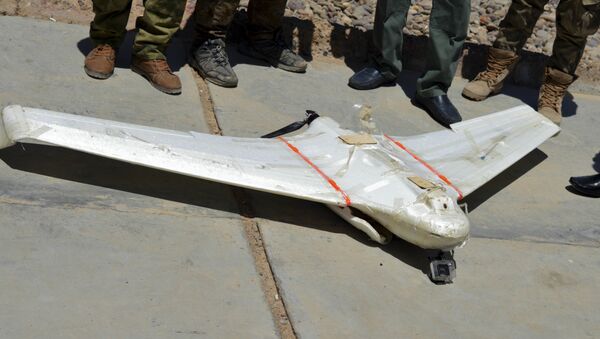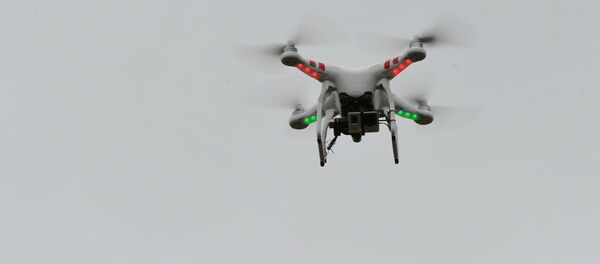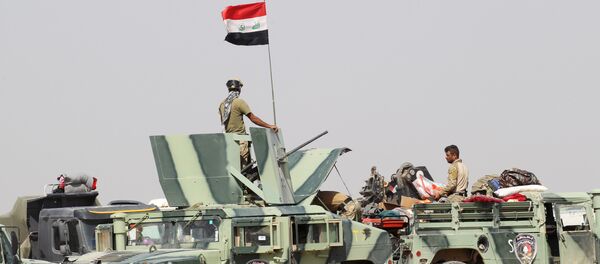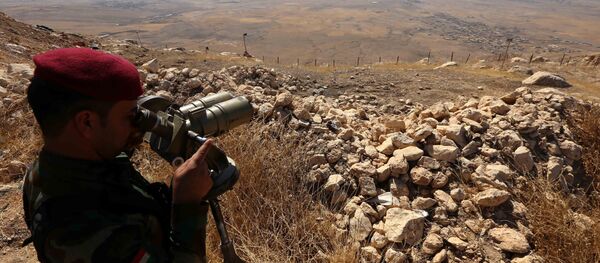"The coalition has been working this issue hard for some time in concert with the Joint Improvised-Threat Defeat Organization, JIDO, the US Army, [the Office of the Secretary of Defense] and others," Operation Inherent Resolve Spokesman Colonel John Dorrian said in an October 12 teleconference from Baghdad.
In addition to the Drone Defender system, other "advanced systems" have been sent to help detect, track and destroy drone threats, he told reporters.
There is "a sense of urgency" in the dispatching of drone defeating technology to US forces now, said JIDO Director Lieutenant General Michael Shields the same day, Defense One reports.
This technology includes Spynet, a rotating infrared camera on a tall tower that can detect even very small drones, and even a new drone-detecting radar that can itself be mounted on a drone, one of the results of a five-year, $99 million contract awarded to the IMSAR company in Virginia in 2014.
Dorrian called the burgeoning threat of what are, at this stage, airborne IEDs, "a threat that’s not new to the area." Asked if such threats were a trifle or a crisis, he said they fell somewhere in the middle. "[T]he implications of this are certainly not an existential threat and not something that's militarily significant in that it's going to stop anything that needs to happen from happening."
That includes the impending Iraqi invasion to retake Mosul.
"Now, that said, we don't just let the enemy develop a capability that threatens our forces and those forces of our allies and partners and leave that threat unaddressed. So, we've moved some additional capabilities into position and we will go after those capabilities whenever and wherever we see them," he said.
The battle for Mosul may be creating some of the urgency around these new defense systems. The hand-held Battelle Drone Defender system already in use by US forces, which works like an anti-drone gun that shoots electromagnetic energy at drones, may be much more effective in the open desert than in a city crowded with its own electronic devices, the Defense One report points out. Research into how to use the Drone Defender system concept in cities would be "a worthy investment," according to Shields, cited by Defense One.
Amid reports that Mosul has been widely rigged and booby-trapped, drone-mounted technology to detect bombs in tunnels, including JIDO's direct synthetic electromagnetic gradiometer, which can be flown over areas to detect tunnels, would seem very relevant. There is also the possibility that Daesh is using drones to spy on Iraqi and coalition preparations for battle, something Dorrian said is being discussed and "that we're going to move out smartly to address."
"That's why we brought this additional [anti-drone] capability into the country," he said.




